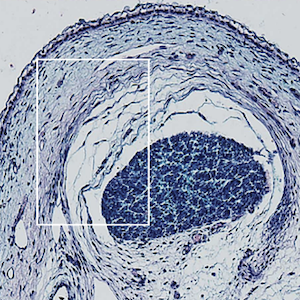The use of tumor necrosis factor inhibitors during high-risk pregnancies in antiphospholipid syndrome: a clinical report of a patient with concomitant Takayasu arteritis and case-based review

All claims expressed in this article are solely those of the authors and do not necessarily represent those of their affiliated organizations, or those of the publisher, the editors and the reviewers. Any product that may be evaluated in this article or claim that may be made by its manufacturer is not guaranteed or endorsed by the publisher.
Authors
In the field of obstetric antiphospholipid syndrome (APS), studies in mouse models and case reports support the potential benefit of tumor necrosis factor-α inhibitors (TNF-α-i ) in preventing pregnancy loss associated with APS. We present the case of a 36-year-old woman with a diagnosis of Takayasu arteritis who suffered from antiphospholipid antibody (aPL)-related thrombotic microangiopathy/probable catastrophic APS during her first pregnancy and who had a subsequent successful pregnancy while on treatment with certolizumab pegol (CZP), heparin, and low-dose aspirin. The report is followed by the literature review of published cases of APS or aPL-positive pregnancies treated with CZP or other TNF-α-i . A total of 20 pregnancies, including the one here presented, were reported in high-risk APS patients exposed to TNF-α-i , showing a favorable outcome in most pregnancies (80% live births, 69% absence of adverse pregnancy outcomes). Despite the limited available evidence, TNF-α-i could represent a promising option for high-risk patients in obstetric APS.
How to Cite

This work is licensed under a Creative Commons Attribution-NonCommercial 4.0 International License.











